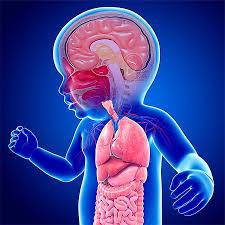
19 minute read
Cell therapy and regenerative medicine
Isolation and Banking of Cord Blood Stem Cells and Placental Tissues for Future Clinical Therapies
Suitability: Honours/PhD
Advertisement
Location: The Ritchie Centre, Hudson Institute of Medical Research; Level 5, Translational Research Facility, Monash Medical Centre, Clayton Project Leaders: Prof Graham Jenkin, A/Prof Suzie Miller, Dr Courtney McDonald, Dr Margie CastilloMelendez Email: graham.jenkin@monash.edu Phone: 0419534101 (Prof Jenkin)
Project Description: Umbilical cord blood and the umbilical cord are a recognised source of a range of stem cells including mesenchymal stem cells (MSCs), hematopoietic stem cells (HSCs) and endothelial progenitor cells (EPCs), which have the potential to differentiate into a wide range of cell types and are also potentially neuroprotective, angiogenic, immunomodulatory and antiinflammatory. The use of these cells is being explored in a number of therapeutic settings. This project, carried out in collaboration with Cell Care, will validate methods for collection, processing, expansion, characterization and storage of umbilical cord blood and tissue containing these cells, and their viability and efficacy on retrieval post-thaw.
Activating the stem cell niche
Suitability: Honours/PhD
Location: The Ritchie Centre, Hudson Institute of Medical Research; Level 5, Translational Research Facility, Monash Medical Centre, Clayton Project Leaders: A/Prof Rebecca Lim, Prof Euan Wallace Email: rebecca.lim@monash.edu Phone: 03 8572 2794 (A/ProfLim)
Project Description: Amnion stem cells have reparative potential in the lung. It is yet unknown how they trigger the regenerative process to improve lung function. We will use an animal model to mimic chronic lung disease and determine how amnion stem cell treatment can awaken the stem cell niche in the lung. Various techniques will be employed such as small animal surgery, stem cell culture, immunohistochemistry, ELISA, FACS, realtime PCR and western blotting. This project will provide valuable data on the mechanism of stem cell action as this work progresses to clinical trials.
Cord Blood Derived Stem Cells as Therapy for Brain and Lung Inflammation in Preterm Newborns
Suitability: Honours/PhD
Location: The Ritchie Centre, Hudson Institute of Medical Research; Level 5, Translational Research Facility, Monash Medical Centre, Clayton Project Leaders: A/Prof Suzie Miller, Prof Graham Jenkin, Dr Margie Castillo-Melendez, Dr Atul Malhotra Email: graham.jenkin@monash.edu Phone: 0419534101 (Prof Jenkin)
Project Description: Premature birth leads to lifelong complications of both brain and lung development. Cells isolated from umbilical cord blood have stem cell-like properties and other characteristics that make them attractive as a potential cell therapy. The aim of this project is to identify the effect of human UCBCs on inflammatory responses of newborn preterm lambs in order to develop clinical therapies for treatment of brain injury in preterm newborns. The experiments include whole-animal physiology, immunology, microscopy and molecular biology techniques.
Cell therapy and regenerative medicine
Do Cord Blood Stem Cells Reduce Cerebrovascular Brain Injury?
Suitability: Honours/PhD
Location: The Ritchie Centre, Hudson Institute of Medical Research; Level 5, Translational Research Facility, Monash Medical Centre, Clayton Project Leaders: A/Prof Suzie Miller, Dr Margie Castillo-Melendez, Email: suzie.miller@monash.edu Phone: 03 8572 2796 (A/Prof Miller)
Project Description: Babies that are born preterm are at the greatest risk of developing cerebral palsy. Indeed, up to 50% of children with cerebral palsy were born preterm. It is now appreciated that the parents of many Australian children with cerebral palsy are taking their children overseas to undertake cord blood stem cell therapy, despite a lack of published data that such therapy will be beneficial. We have identified that a principal component of brain injury in the preterm brain is instability of the blood vessels, which allows inflammatory and other blood products to enter the brain and damage cells. This project will examine whether cord blood stem cells can protect blood vessels within the brain, and in turn prevent brain injury. This project utilizes brain tissue that has already been collected and does not require the student to undertake animal work.
Keywords:
brain development, neuroprotection
Angiogenesis potential of exosomes
Suitability: Honours/PhD
Location: The Ritchie Centre, Hudson Institute of Medical Research, Level 5, Translational Research Facility, Monash Medical Centre, Clayton Project Leaders: Dr Mirja Krause, A/Prof Rebecca Lim Email: mirja.krause@hudson.org.au Phone: 03 8572 2874 (Dr Krause)
Project Description: It has been shown that exosomes can modulate angiogenesis (formation of new capillaries from pre-existing vasculature). This project looks to assess the angiogenesis potential of exosomes released by human amnion epithelial cells in more detail. Techniques employed include stem cell isolation and cultivation followed by exosomes isolation/ purification, tissue culture, exosome quantification and characterization, live cell fluorescence confocal microscopy.
Keywords:
human amnion epithelial cells, exosomes, angiogenesis
Bioengineering strategies to enhance stem cell therapeutics for vascular regeneration
Suitability: Honours/PhD
Location: The Ritchie Centre, Hudson Institute of Medical Research, Level 5, Translational Research Facility, Monash Medical Centre, Clayton Project Leaders: Dr Gina Kusuma, A/ProfRebecca Lim Email: gina.kusuma@hudson.org.au Phone: 03 8572 2876 (Dr Kusuma)
Project Description: The global burden of peripheral artery disease is at a dramatic increase due the prevalence of aging, obesity, diabetes, cardiovascular disorders, and autoimmune diseases. Stem cells have a significant promise for cell therapies and regenerative medicine applications. Stem cells serve as bio-factories releasing bioactive products including growth factors and exosomes and there is now increasing evidence that exosomes confer the therapeutic benefits of stem cells, thus accelerating the pathway for cell-free therapies. This project propose aims to enhance vascular regeneration potential of stem cell-derived exosomes by using cues from the cellular environment. Stem cells are highly sensitive to physical stimuli from their surrounding microenvironment and this project will evaluate this by comparing the traditional 2D static culture with dynamic 3D culture. Techniques employed include stem cell culture, immunofluorescence, proliferation assay, 3D culture, exosomes isolation, Western blotting, nanoparticle tracking analysis, and angiogenesis assays.
Keywords
stem cells, exosomes, regenerative medicine, angiogenesis

Cell therapy and regenerative medicine
Novel formulations of stem cell-derived exosomes for vascular regeneration
Suitability: Honours/PhD
Location: The Ritchie Centre, Hudson Institute of Medical Research, Level 5, Translational Research Facility, Monash Medical Centre, Clayton Project Leaders: Dr Gina Kusuma, A/Prof Rebecca Lim Email: gina.kusuma@hudson.org.au Phone: 03 8572 2876 (Dr Kusuma)
Project Description: Peripheral artery disease (PAD) affects more than 200 million people globally and the main driving forces is the ageing of the population and increase in cardiovascular risk factors, such as smoking, diabetes mellitus, and hypertension. PAD is a severe medical condition commonly characterised by critical or acute limb ischemia that arises due to blockage of arteries in the lower limbs. Defective angiogenesis and wound healing capacities are the principal factors limiting tissue recovery in ischemic diseases and this project seeks to fine-tune the mechanisms controlling this process by employing targeted drug delivery system. Stem cell therapies are typically employed to repair tissue functions in the event of injury.
Stem cells also serve as bio-factories releasing bioactive products including growth factors and exosomes and there is now increasing evidence that exosomes confer the therapeutic benefits of stem cells, thus accelerating the pathway for cellfree therapies. Biomaterials such as hydrogels often used for drug delivery and we can tailor the release of biomolecules by altering their physicochemical properties such that in vivo the hydrogel can release the factors by different mechanisms such as swelling, degradation, or deformation. This project aims to develop formulations of stem cell-derived exosomes encapsulated in biomaterials to improve their stability and enhance vascular regeneration. Techniques employed include: murine peripheral artery disease model, stem cell culture, exosomes isolation, nanoparticle tracking analysis, biomaterials fabrication, in vitro angiogenesis and wound healing assays
Keywords
stem cells, vascular biology, extracellular vesicles, angiogenesis, biomaterials
Treatment of critical limb ischemia with stem cell-based nanomedicine.
Suitability: Honours/PhD
Location: The Ritchie Centre, Hudson Institute of Medical Research; Level 5, Translational Research Facility, Monash Medical Centre, Clayton Project Leaders: A/Prof Rebecca Lim Email: rebecca.lim@monash.edu Phone: 03 8572 2794 (A/Prof Lim)
Project Description: Critical limb ischemia (CLI) affects 15% of the population of every socioeconomic scale. Arteriosclerotic plaque buildup causes occlusion of oxygen and nutrient supply to the limb leading to tissue death, leaving amputation as the only option. Amnion stem cell derived nanomedicine have shown significant vasculogenesis potential making them a viable source for therapy. We will use an animal model to mimic CLI and determine how naturally occurring nanoparticles released by stem cells can help revascularise necrotic limb and prevent amputation.

Cell therapy and regenerative medicine
Developing a combination stem cell therapy for preterm inflammation induced brain injury
Suitability: Honours/PhD
Location: The Ritchie Centre, Hudson Institute of Medical Research, Level 5, Translational Research Facility, Monash Medical Centre, Clayton Project Leaders: Dr Courtney McDonald, A/Prof Suzie Miller, Prof Graham Jenkin, Email: courtney.mcdonald@monash.edu Phone: 03 8572 2799
Project Description: Preterm birth and in utero inflammation (chorioamnionitis) place babies at high risk of neurodevelopmental deficits. White matter injury is the most common neuropathology in these infants, due to the vulnerability of developing oligodendrocytes. There are no established therapeutic interventions to protect or repair the immature brain after preterm birth. Stem cells derived from placental tissues have excellent neuroprotective potential. We have shown that stem cells, have the capacity to reduce inflammation and improve white matter cell survival and maturation. Using a preterm sheep model of inflammation induced brain injury, this project will test the combination of two stem cell types, UCB and MSCs with anti-inflammatory and/or white matter protective properties. As part of this project you will learn large animal surgery and monitoring, brain immunohistochemistry and molecular techniques using PCR and protein arrays.
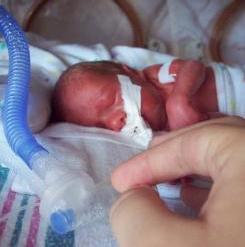
Isolation and Expansion of Umbilical Cord Blood Stem Cells for Regenerative Medicine
Suitability: Honours/PhD
Location: The Ritchie Centre, Hudson Institute of Medical Research; Level 5, Translational Research Facility, Monash Medical Centre, Clayton Project Leaders: Prof Graham Jenkin, Dr Courtney McDonald, Dr Ashalyn Watt Email: graham.jenkin@monash.edu Phone: 0419534101 (Prof Jenkin)
Project Description: Umbilical cord blood (UCB) is one of the richest sources of “young” hematopoietic stem cells. Currently, more than 3000 UCB stem cell transplants are performed each year. However, these are mostly restricted to children, as UCB samples usually do not contain sufficient stem cells to treat adults. The umbilical cord and cord blood also contain multiple potentially efficacious cell types for a range of diseases. Hence, this research project aims to develop and refine methods for expanding the number of stem cells obtained from human UCB and umbilical cord under laboratory conditions and translation of this research to the clinic. This stem cell research could help save lives of people suffering from blood disorders, cancers and auto-immune diseases. The experiments will include cell culture and molecular biology techniques and structural analysis of UCB stem cells.
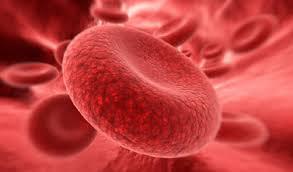
Cell therapy and regenerative medicine
Development of a novel MRI method to deliver neural stem cells to the developing brain
Suitability: Honours/PhD
Location: The Ritchie Centre, Hudson Institute of Medical Research; Level 5, Translational Research Facility, Monash Medical Centre, Clayton Project Leaders: Dr Courtney McDonald, A/Prof Suzie Miller, Prof Graham Jenkin, A/Prof Michael Fahey Email: courtney.mcdonald@monash.edu Phone: 03 8572 2799
Project description: Neural stem cells (NSCs) offer great promise as a neuroprotective therapy against a range of neurological conditions, like cerebral palsy. A major challenge of NSC therapy for neurological conditions is getting the cells to the brain. Current intracerebral-delivery of NSCs is highly invasive and carries significant risks for the patient. We propose to develop a novel, noninvasive MRI-guided focused ultrasound (MRIgFUS) method for delivery of NSCs to the brain using a neonatal rodent model. MRIgFUS temporarily opens the blood brain barrier (BBB) allowing cells to directly access the brain, overcoming the need for invasive and high-risk brain or spinal administration.
This project will (a) optimise MRIgFUS for the delivery of clinically-compatible human NSCs that minimises collateral damage to the neonatal rat brain, and (b) examine the impact of MRIgFUSNSC transplantation on long-term outcomes (cognition, memory, motor-skills) of stroke-affected rodents. As part of this project, you will learn small animal surgery, motor control and cognitive behavioural testing, MRI and ultrasound techniques and brain immunohistochemistry.
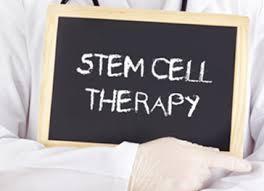
Stem Cells and Tissue Scaffolds
Suitability: Honours/PhD
Location: Department of Surgery, Monash Medical Centre, Clayton & The Ritchie Centre, Hudson Institute of Medical Research; Level 5, Translational Research Facility, Monash Medical Centre, Clayton Project Leaders: A/Prof Tony Goldschlager, Prof Graham Jenkin Email: graham.jenkin@monash.edu Phone: 0419534101 (Prof Jenkin)
Project Description: In these studies, we are investigating the suitability of novel new biomimetic matrices to form tissue structures to produce biomimetic structures such as spinal discs and trapezium joints for repair of damage caused by trauma or degenerative processes. We will study the characteristics of biomatrices both in vitro and in vivo.
We will determine the appropriateness of our cellular scaffolds for the production of engineered tissues. We will determine the most appropriate polymer compositions and stem cell combinations that can be developed into the most viable scaffold for therapeutic use in clinical trials.

Cell therapy and regenerative medicine
Derivation of Human Induced Pluripotent Stem Cells (iPSCs) using mRNA
Suitability: Honours/PhD
Location: The Ritchie Centre / Cartherics, Hudson Institute of Medical Research; Translational Research Facility, Monash Medical Centre, Clayton Project Leaders: Prof Alan Trounson, Prof Graham Jenkin Co-supervisors: Dr Roland Shu Email: graham.jenkin@monash.edu Phone: 0419534101 (Prof Jenkin)
Project Description: Human iPSCs may be derived using a range of methods. For clinical use, it is desirable to use non-genomic integrating methods for expressing the primary transcription factors (cMYC, OCT4, SOX2 and KLF4). It is possible to use mRNA (ReproCELLStemgent https://www.stemgent.com/products/227) to derive iPSCs from adherent cell types –blood or skin biopsy cell types (cord blood or cord tissue stem cells). Cord blood and cord blood MSCs will be obtained for generating adherent cell populations for the PhD studies through the Hudson Institute.
It is proposed that during the reprogramming step from somatic cells to iPSCs that it is more efficient to gene edit for other necessary changes at the same time. E.g. to introduce a chimeric antigen receptor (CAR) that can target cancer cells after differentiation to cytotoxic T cells. Or to knock-out or knock-in other edits useful for T cell function in killing solid tumour cells. This approach will be compared to single step iPSC conversion and iPSC gene editing. The use of cord blood cells verses cord tissue MSCs for iPSC production will also be evaluated.
The PhD will involve the production of iPSCs using mRNA and gene edits for CARs and a knockout of the PD1 gene, responsible for inhibition of T cell killing function. The iPSCs produced will be forward reprogrammed to cytotoxic T cells to confirm their targeted tumour killing ability. The studies will be undertaken Labs at the Monash Health & Translation Precinct.
A novel biosystem for the induction of cytotoxic T cells from induced pluripotential stem cells
Suitability: Honours/PhD
Location: The Ritchie Centre / Cartherics, Hudson Institute of Medical Research; Translational Research Facility, Monash Medical Centre, Clayton Project Leaders: Prof Richard Boyd and Prof Graham Jenkin, Co-supervisors: Dr Sacha Khong, Dr Nicholas Boyd, Technical support: Kelly Cartledge Email: graham.jenkin@monash.edu Phone: 0419534101 (Prof Jenkin)
Project description: The recent revolution in bioengineering of the cellular immune system offers a promising new frontier of personalized medicine with the potential to ultimately defeat cancer. This is best exemplified by being able to “Supercharge” the anti-cancer power of the immune system by genetically engineering killer T lymphocytes with Chimeric Antigen Receptors (CARs). These CAR-T cells are yielding unprecedented clinical success in some blood cancer. Currently, CAR-T cells are generated from the patients’ own blood T cells. This is very problematic because the patients will have invariably had high dose chemotherapy, which is severely toxic to the immune system, limiting both the number and quality of cells which can be transduced to express the CAR receptor.
A pre-derived, highly defined ‘off-the-shelf’ CART treatment that is compatible with a broad range of patients, is the future of CAR-T immunotherapy. The challenge is how to create such allogeneic CAR-T cells. The solution lies in using induced pluripotential stem cells (iPSC) which can be expanded infinitely in contrast to T cells which only have a limited number of divisions. This project will involve culturing iPSC, gene editing them to contain the CAR-DNA constructs, and then developing the methodology for inducing their differentiation into mainstream CD8+ T cells with the functional ability to induce lysis of cancer cells. The project will not only vastly transform the utility of CAR-T cells for the clinic but also serve as a platform for creating polyclonal T cells for restoring immunity in immunosuppressive states such as following high chemo therapy and the effects of aging.
Cell therapy and regenerative medicine
Optimising the function of anti-cancer killer T cells: the role of endogenous TCR in CAR-T function and overcoming exhaustion to supercharge CAR-T cells
Suitability: Honours/PhD
Location: The Ritchie Centre / Cartherics, Hudson Institute of Medical Research; Translational Research Facility, Monash Medical Centre, Clayton Project Leaders: Prof Richard Boyd, Prof Graham Jenkin, Co-supervisor: Dr Vera Evtimov Email: graham.jenkin@monash.edu Phone: 03 8572 2801 (Prof Jenkin)
Project description: Chimeric antigen receptor (CAR-) T cells are designed to exploit the intrinsic cytotoxic function of T cells, whilst manipulating specificity by expressing a nominal antigenspecific receptor containing a cytoplasmic activation domain. CAR-T cells are providing extraordinary results in the clinic, particularly for haematological malignancies. As exciting and tantalising as this immunotherapy revolution is, there are still major hurdles to be overcome in optimising their clinical utility. This project will apply the rules that govern normal endogenous T cell function to CAR-T cells, to help their functional impact across a range of cancers and to increase their longevity after transplantation. Recent studies have shown that T cell exhaustion significantly impacts the ability for chimeric antigen receptor (CAR-) T cells to remain potent killers.
The project will utilize a variety of sophisticated technologies including the real-time impedance based xCelligence cytotoxicity and Luminex Multiplex cytokine arrays. Overall, this project will aim to characterise how T cell receptor (TCR) mediated activation and ultimately modulation of T cell exhaustion will enhance CAR-T potency in vitro and in vivo.
Next-generation micro-bead signalling systems for T-cell generation and cancer treatment
Suitability: PhD
Location: The Ritchie Centre / Cartherics, Hudson Institute of Medical Research; Translational Research Facility, Monash Medical Centre, Clayton Project Leaders: Prof Richard Boyd, Prof Alan Trounson, Prof Graham Jenkin, Co-supervisors Dr Roland Shu, Dr Nicholas Boyd Email: graham.jenkin@monash.edu Phone: 0419534101 (Prof Jenkin)
Project description: The ability to genetically enhance a T lymphocyte with a cancer tracking surface antibody that activates a killing cascade upon binding to the target cancer cell, has revolutionised immunotherapy. This project aims to overcome a major practical problem –generating sufficient supply of these genetically “supercharged T cells” from stem cells. Aim: The ability to create an unlimited supply of CAR-T cells from iPSC unlocks access cancer immunotherapy to the masses. This requires an efficient iPSC to T-cell differentiation tissue culture system that is applicable to up-scale manufacture and clinical translation. The aim of this project is to provide a crucial element to this differentiation system by translating the highly coordinated set of signals provided by epithelial support cells within the thymus, into synthetic delivery system using microbeads and surface engineering. The killing potency of in vitro generated T-cells is the primary target endpoint of this project and a major hurdle the field currently faces, beyond clinical applicability and T-cell conversion efficiency from iPSC. The ability for these in vitro generated T-cells to kill host different adenocarcinomas, in vitro and in mice will be assessed. This will be crucial for applying this technology into human clinical trials.
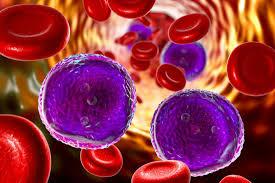
Cell therapy and regenerative medicine
Genetically engineered human MSCs as supporting inducers of in vitro T cell production
Suitability: PhD
Location: The Ritchie Centre / Cartherics, Hudson Institute of Medical Research; Translational Research Facility, Monash Medical Centre, Clayton Project Leaders: Prof Richard Boyd, Prof Alan Trounson, Prof Graham Jenkin, Co-supervisors Dr Roland Shu, Dr Nicholas Boyd Email: graham.jenkin@monash.edu Phone: 0419534101 (Prof Jenkin)
Project description: Genetically modified chimeric antigen receptor T cells (CAR-T cells) represent a new revolution in anti-cancer immunotherapy. A major problem, however, is that the treatment currently relies on using the cancer patients own blood but they invariable have too few T cells available for genetic enhancement. Furthermore, prior treatment with chemotherapy substantially reduces their function. This study aims to develop a new approach to generating CAR-T cells from stem cells. T cells derived in vitro from induced human pluripotent stem cells (iPSC) offer great potential advantages in generating a self-renewing source of T cells that can be readily genetically modified for immunotherapy. The project is aiming to generate a genetically modified human stromal cell line from human Mesenchymal Stem Cells (MSC), for supporting the T cell in vitro differentiation.

Elimination of cancer stem cells using chimeric antigen receptor T cells
Suitability: PhD
Location: The Ritchie Centre / Cartherics, Hudson Institute of Medical Research; Translational Research Facility, Monash Medical Centre, Clayton Project Leaders: Prof Richard Boyd, Prof Alan Trounson, Prof Graham Jenkin, Co-supervisor: Dr Vera Evtimov Email: graham.jenkin@monash.edu Phone: 0419534101 (Prof Jenkin)
Project description: Disease relapse in CAR-T therapies of solid tumours suggests that current treatments lack the ability to eliminate the small subset of cells known as cancer initiating cells or cancer stem cells (CSCs). We propose to use the sophisticated specificity of immunotherapy to target surface membrane antigens present on the CSC, negating the current need for the cancer cell to be proliferating for killing efficacy of CAR-T therapies.
This project will aim to phenotypically and functionally characterise CSCs from multiple cancer indications including ovarian, gastric and cutaneous T cell lymphoma and demonstrate the ability of CAR-T cells to effectively eliminate these cells in vitro and in vivo. At the conclusion of this project, you will have successfully characterised the CSC subpopulation in select cancer indications and demonstrated that CARTs are able to completely eliminate these cells both in vitro and in vivo.
Cell therapy and regenerative medicine
Re-engineering the function of natural killer cell receptors via CRISPR/Cas9: a new approach for ‘off-the-shelf’ immunotherapy
Suitability: PhD
Location: The Ritchie Centre / Cartherics, Hudson Institute of Medical Research; Translational Research Facility, Monash Medical Centre, Clayton Project Leaders: Prof Richard Boyd, Prof Graham Jenkin, Co-supervisors: Dr Roland Shu, Dr Vera Evtimov, Dr Nicholas Boyd Email: graham.jenkin@monash.edu Phone: 0419534101 (Prof Jenkin)
Project description:
Cellular immunotherapy with chimeric antigen receptors (CARs) has provided unprecedented results in treatment of liquid cancers. However, the few FDA approved autologous based therapies have been priced around $400,000 per patient. Inherently these face major challenges to reach mass adoption. Furthermore, autologous CAR-T treatments can require ~2 months to manufacture (often time patients don’t have) and produce variable (often insufficient) cell numbers as a result of poor immune systems hampered by chemotherapy. An on-demand, highly defined, universal product, which is compatible with multiple patients is required to unlock cellular immunotherapy therapy for the public.
This project will investigate a new alternative to inserting an entire synthetic CAR signalling system into the NK cells. Via CRISPR/Cas9 gene-editing, the terminal binding domain of NK surface receptors will be replaced with single chain variable fragments (scFV) that work as targets for cancer cells. Upon binding, all the natural activation and killing mechanisms related to that NK surface receptor will be engaged, giving the NK cell the potential to alleviate short- falls of CAR-triggered cytotoxicity and enhance the effect of tumour specific NK cell killing.





